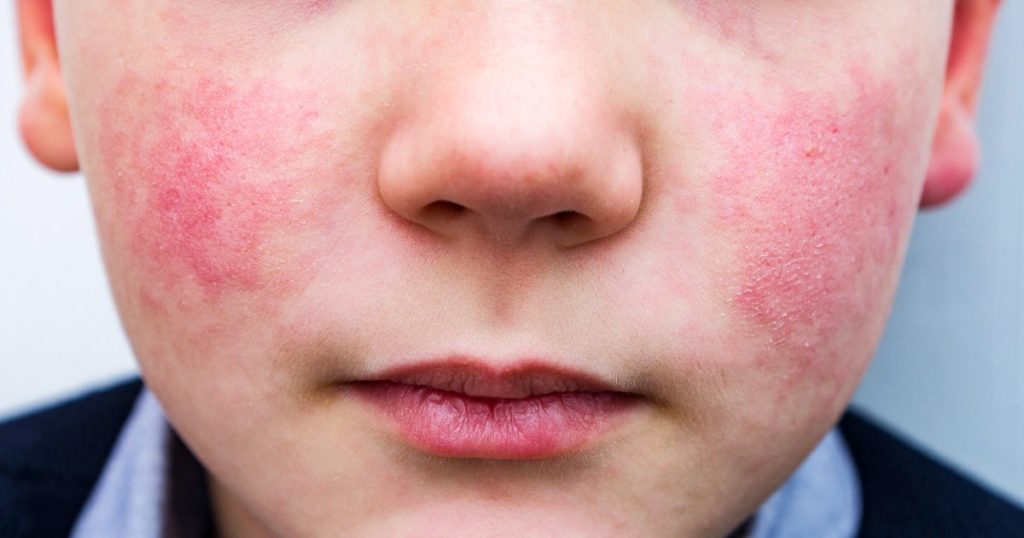Human parvovirus B19, also known as “slapped cheek disease,” is a highly contagious respiratory infection that is on the rise in the United States, particularly among young children. The U.S. Centers for Disease Control and Prevention issued a health advisory warning about the increase in parvovirus B19 activity, with the greatest surge in cases among children ages five to nine. The proportion of people with antibodies for parvovirus B19 has increased significantly, indicating recent infection. The CDC has also received reports of clusters of parvovirus B19-associated complications among pregnant individuals and people with sickle cell disease.
Human parvovirus B19 is a highly contagious seasonal respiratory infection most common in late spring and summer. It is known for causing a characteristic facial rash, often referred to as “slapped cheek” disease or “fifth disease.” While the infection is usually mild or asymptomatic, it can cause more severe disease in adults without existing immunity, particularly in pregnant individuals, those who are immunocompromised, and individuals with certain blood disorders. The virus spreads through respiratory droplets when an infected person coughs or sneezes, typically through close personal contact.
Parvovirus B19 symptoms are often mild and flu-like, including fever, headache, cough, sore throat, runny nose, joint pain, and a distinctive “slapped cheek” rash. While most people recover completely from the infection, pregnant individuals, immunocompromised individuals, and those with certain blood disorders are at higher risk of complications. In pregnant individuals, the virus can potentially cross the placenta and infect the fetus, leading to adverse fetal outcomes such as fetal anemia or miscarriage. Treatment focuses on symptom management, with no specific antiviral therapy for parvovirus B19. Patients who develop anemia may require blood transfusions or other therapies.
Prevention of parvovirus B19 involves following basic hygiene practices such as frequent handwashing, covering coughs and sneezes, avoiding contact with sick individuals, and keeping sick children at home. There is no vaccine available to prevent parvovirus B19 infection. It is important for individuals, especially pregnant women and those with weakened immune systems, to take precautions to reduce the risk of infection. It is noteworthy that human parvovirus B19 is different from the type of parvovirus that infects animals, such as dogs, and does not spread between people and pets.
Overall, the increase in parvovirus B19 cases in the U.S. and globally highlights the importance of awareness and preventive measures to reduce transmission and protect vulnerable populations. While most cases of parvovirus B19 are mild and self-limiting, the potential for serious complications in certain individuals underscores the need for vigilance and public health monitoring. By staying informed about the symptoms, transmission, and prevention of parvovirus B19, individuals can take steps to protect themselves and others from this common viral infection.


